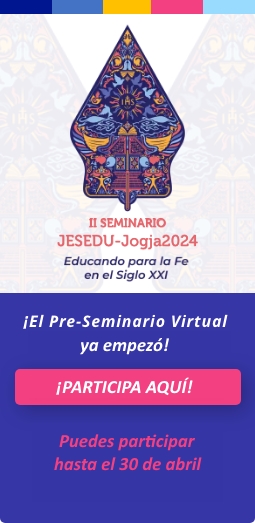 In my 12 years at Arrupe Jesuit High School, I’ve always been proud of walking with the “excluded.” As part of the Cristo Rey model, our school provides a rigorous college preparatory education, while also providing students with an opportunity to earn their education and gain valuable work experience. In 1980, in a document entitled Our Secondary Schools: Today and Tomorrow, Superior General Pedro Arrupe, SJ wrote, “We are committed to educate any class of person, without distinction,” and this is something that I feel Arrupe Jesuit does really well.
In my 12 years at Arrupe Jesuit High School, I’ve always been proud of walking with the “excluded.” As part of the Cristo Rey model, our school provides a rigorous college preparatory education, while also providing students with an opportunity to earn their education and gain valuable work experience. In 1980, in a document entitled Our Secondary Schools: Today and Tomorrow, Superior General Pedro Arrupe, SJ wrote, “We are committed to educate any class of person, without distinction,” and this is something that I feel Arrupe Jesuit does really well.
I recently had the opportunity to talk with several Arrupe graduates, and ask about their experiences at the school and while participating in our work-study program. One experience that struck me in particular came from a recent graduate who said, “Honestly, when I was a student, I didn’t know I was poor until I was told I was poor.»
He talked about feeling like an outsider, regardless of how welcoming and loving the school community was. He also spoke about how those feelings have shaped some of his current struggles with imposter syndrome, not only in college but also at work. Another struggle of his is tied to the labels he was given during his high school years: “a kid living on the margins,” “a student on the free-reduced lunch program,» and “a member of an excluded community.”
The point of this article is not to point fingers or to say that the work we’re doing is not good. Instead, this is a reminder that the work that we’re doing is beautiful and amazing, and has the power to have lasting effects. When we work with “those living on the margins, the excluded and the poor,” let us remind ourselves that we need to be mindful of our interactions with our students. We need to make sure that what we’re doing values our students, and doesn’t reduce them to a statistic or a label. We should walk with those that have been excluded by others, but also be mindful of the way we talk to them. Moving forward, something I’m going to do is hold myself accountable and make sure that instead of focusing on a student’s deficits or lack of resources, I focus on his/her strengths and what gifts he/she brings to the organization. My hope is that future conversations with alumni sound like, “I didn’t know how talented I was until someone showed me how talented I was.”
Article written by Vianney Rodriguez from Arrupe Jesuit High School

Inicia sesión o Hazte miembro
para crear y ver comentarios
